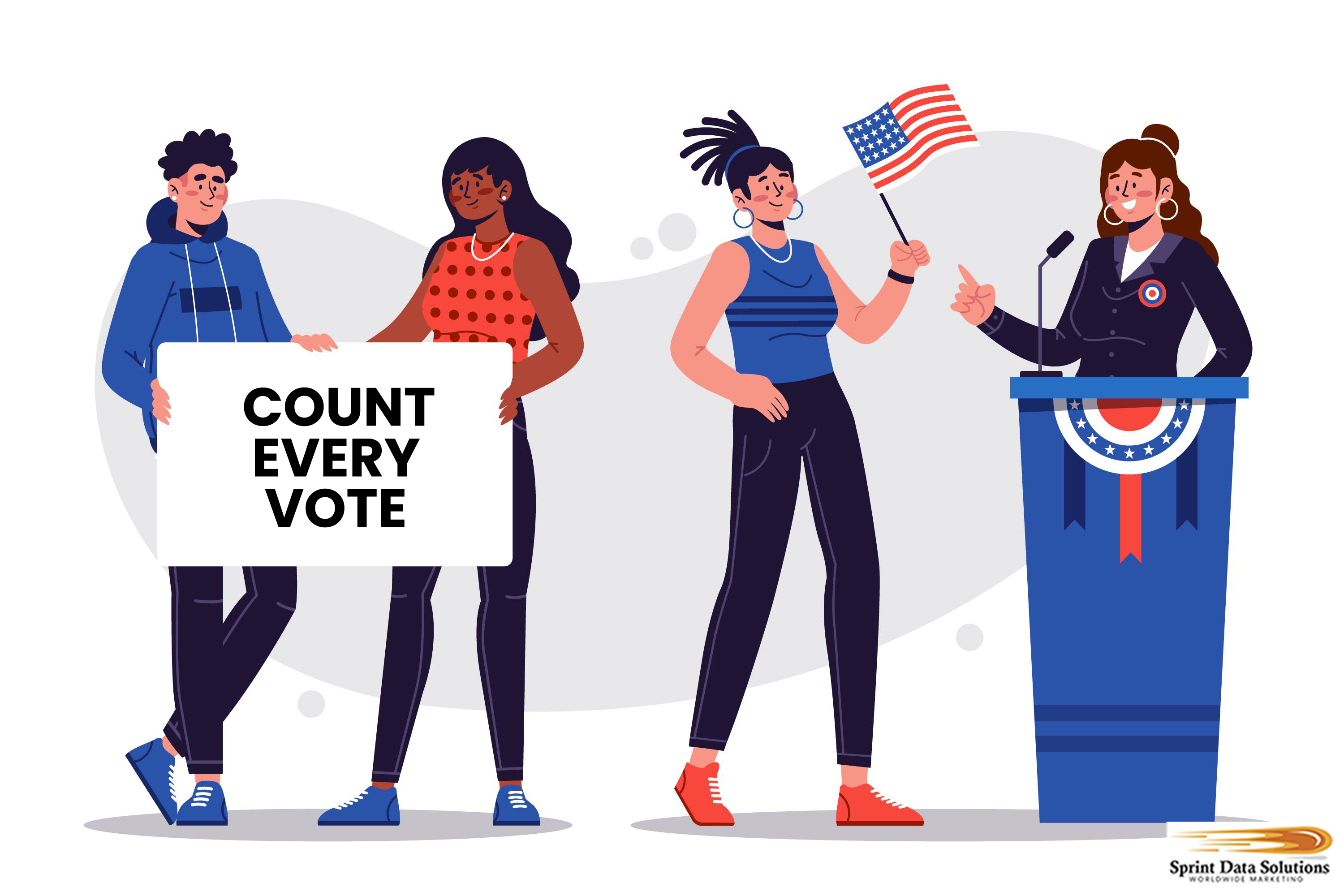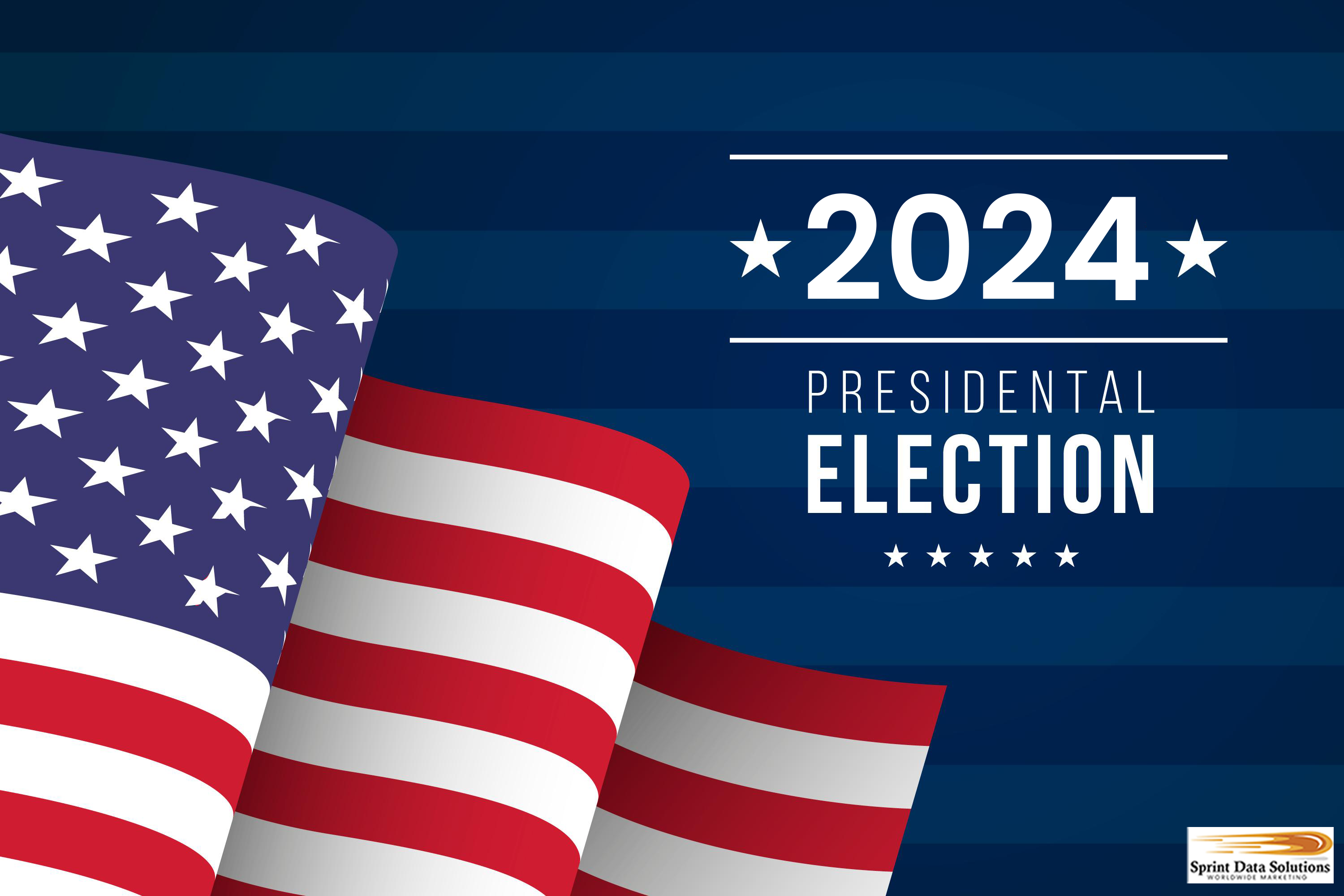Registered Voter Mailing List
The United States is one of the rare nations in history where the system of governance was explicitly designed to operate under a democracy from its very founding. Unlike many countries that have evolved from monarchies or authoritarian systems, the U.S. was created with the intention that the power to govern would rest in the hands of the people themselves. This form of government, where citizens directly influence the selection of their leaders, stands as a cornerstone of the American political system. The ability to choose representatives who reflect the diverse values, interests, and priorities of the citizenry is enshrined in the country’s Constitution and manifests at all levels of government—local, state, and federal.
The democratic process in the United States is inherently linked to the election cycle, which occurs regularly across the nation. These elections, held at every level of government, are not mere formalities but critical events that shape the nation’s direction. From electing local officials to deciding on who will occupy the highest offices in the land, elections provide a platform for candidates to present themselves and their ideas to the public. Campaigns are organized with the intent of informing the electorate, showcasing the vision and policies of candidates, and creating discourse about the future of the country. Candidates often employ various strategies, including advertisements, debates, rallies, and media appearances, to connect with voters and convince them of their qualifications.
While the process involves much preparation, the heart of the democratic system is the election itself. Citizens exercise their right to vote in a manner that reflects their preferences and beliefs. This is often done through in-person voting at designated polling stations, which has long been the tradition. However, over time, the U.S. has made strides to ensure that voting is as accessible as possible, incorporating methods like early voting and mail-in ballots. This expansion in voting access reflects an understanding that not all citizens can physically be present at a polling station on election day, whether due to work commitments, disabilities, or other logistical issues.
The move to make mail-in voting a widely accepted practice was a significant step forward in democratizing the electoral process. By allowing citizens to vote from home, the United States has removed barriers that previously prevented some individuals from participating fully in elections. The flexibility of mail-in ballots ensures that people who may be incapacitated, elderly, or living in remote areas, where access to polling stations might be limited, still have their voices heard. Moreover, individuals working long shifts or at jobs that require their presence during election hours can now cast their votes without having to make the difficult choice between their livelihood and their civic duties.
This expansion of voting rights and methods is a direct response to the evolving needs of society, where people increasingly expect their systems of governance to reflect their personal circumstances. This inclusivity not only strengthens the democratic process but ensures that a wider spectrum of the population can participate in the most fundamental civic duty—voting. By embracing alternative methods of voting, such as mail-in ballots and early voting, the United States has taken significant steps in making elections more democratic, accessible, and inclusive, fostering a system where every eligible citizen has the opportunity to shape the country’s future, regardless of personal or physical limitations.
The democratic process is a dynamic and ongoing effort that continually shapes the future of the United States. While the nation’s attention often turns to the quadrennial Presidential election, the reality is that elections are constantly taking place at various levels, from local and county races to state elections. As the gears of the democratic machine turn, each election cycle brings with it the critical decisions that influence the lives of citizens on a more immediate scale. Moreover, preparations for national elections begin long before the first ballots are cast, with campaign teams, political organizations, and party machinery gearing up for what will inevitably be a massive endeavor.
Sprint Data Solutions Worldwide Marketing has long been a trusted partner to political organizations, providing essential data-driven solutions that help drive informed decisions and successful campaigns. For years, the company has assisted political campaigns in targeting voters, engaging constituents, and maximizing outreach efforts. As the political landscape evolves, Sprint Data Solutions Worldwide Marketing is prepared to continue supporting the democratic process, especially as this year marks another significant period of preparation for national elections. With experience in managing and optimizing data lists for political outreach, Sprint Data Solutions Worldwide Marketing stands ready to help both major parties and independent candidates navigate the complexities of campaign strategy and voter engagement. Their expertise in voter data analytics, demographic segmentation, and targeted communications will be crucial in shaping the election campaigns to come. As the nation looks toward the future, Sprint Data Solutions Worldwide Marketing remains committed to ensuring that democracy continues to thrive through well-informed, data-driven campaigning.
About Sprint Data Solutions Worldwide Marketing
Sprint Data Solutions Worldwide Marketing was born out of the vision of a disabled veteran who, after fulfilling his service to the country, sought a new mission—helping drive the nation’s economic growth. The founder, recognizing the importance of fostering the success of American businesses, decided to transition from military service to a civilian career focused on enabling economic progress. With a firm belief that businesses are the backbone of the economy, he chose to pursue a venture that would empower companies by growing their most valuable asset: their customer base.
The journey began in Las Vegas with a single-minded focus on providing exceptional marketing services. Initially operating as a small, locally-focused business, Sprint Data Solutions Worldwide Marketing quickly gained a reputation for delivering outstanding results. Through its commitment to quality, integrity, and customer satisfaction, the company’s early successes laid the groundwork for rapid growth.
Today, Sprint Data Solutions has expanded far beyond its humble beginnings, boasting a loyal and experienced team with over 50 years of combined industry expertise. As a fully American-based company, Sprint Data Solutions Worldwide Marketing has become a leading player in the data acquisition, direct mail, and digital marketing industries. From its initial focus on direct mail to integrating cutting-edge digital marketing strategies, Sprint Data Solutions continues to innovate and offer comprehensive marketing solutions that help businesses thrive in an increasingly competitive marketplace.
Sprint Data Solutions Worldwide Marketing began its journey in the marketing industry by specializing in direct mail campaigns. At a time when digital marketing was still emerging, the company capitalized on the well-established practice of direct mail marketing. This approach involved meticulous database development, collecting crucial information such as names, mailing addresses, and specific demographic insights. The company’s ability to accurately organize and target these assets allowed for highly customized and effective marketing strategies that delivered significant results. As the effectiveness of direct mail campaigns became evident, the company’s database grew exponentially, cementing its reputation as a leader in the field. The success of this model laid the foundation for steady expansion, initially beyond Las Vegas, Nevada, to provide services across the continental United States. Over time, this growth extended to encompass Alaska and Hawaii, achieving nationwide reach. The company didn’t stop there; it expanded further into the North American market, with Canada and Mexico becoming integral parts of its operations. Sprint Data Solutions Worldwide Marketing’s ability to navigate cross-border campaigns enabled it to offer a global reach, eventually servicing clients with interests in international markets, including the European Union. This expansion into global territories, such as France, marked the company’s commitment to helping clients access diverse and high-value consumer bases around the world. Through this unwavering focus on growth and excellence, Sprint Data Solutions Worldwide Marketing has evolved from a regional player to an international marketing powerhouse, providing clients with a broad range of targeting solutions to match the unique demands of their industries.

Elections Are Different In The New Millennium
The democratic process has undergone a significant transformation over the past few decades, particularly due to the influence of the Internet, which has redefined how candidates engage with voters. While traditional platforms such as television, radio, and direct mail remain relevant, new digital methods—social media, email campaigns, and targeted online ads—have disrupted the status quo. These innovations provide candidates with the ability to reach vast audiences quickly and with greater precision, but they also raise questions about the effectiveness of older methods in an increasingly digital world.
Despite the evolving landscape, the core objectives of a campaign have not changed. Candidates must still work to convince voters that they are the right choice for the position they seek. This begins with demonstrating credibility, both in terms of character and qualifications. Voters need to trust that the candidate not only understands the challenges of the role but also possesses the experience and integrity to address them effectively.
In addition to personal qualifications, candidates must outline clear and compelling policy platforms that resonate with the concerns of the electorate. These platforms are not only statements of intention but also promises to enact meaningful change. The credibility of these promises is paramount, as voters are most likely to engage with candidates who can present a coherent, achievable vision for the future. Ultimately, the goal of any election campaign is to build trust and present a convincing case for why the candidate is the ideal person to lead, effect change, and make decisions that impact society. The integration of digital strategies into this process only enhances the candidate’s ability to connect with a more diverse and widespread audience, but the essence of campaigning—persuading voters through a blend of trust, clarity, and vision—remains unchanged.
The evolution of political campaigning strategies has been closely tied to advances in communication technology, each significant shift broadening the scope of voter engagement and refining targeting methods. In the pre-mass communication era, campaigns were primarily built on direct, personal interactions with voters. Politicians traveled extensively, visiting relevant regions and delivering speeches to directly engage with the electorate. Print marketing, such as posters, pamphlets, and leaflets, supplemented these face-to-face engagements, providing voters with additional information about candidates, policies, and positions. The ability to physically reach voters in targeted areas was crucial in these early campaigns, and the communication relied on face-to-face connections to establish trust and build a rapport with potential voters.
As radio emerged in the early 20th century, it revolutionized how political campaigns could communicate with the public. Speeches and interviews, once limited to face-to-face events, could now be broadcast to a wide audience, enabling candidates to reach far more voters. Radio introduced a new dimension to campaigning, where politicians could speak directly into people’s homes, creating a sense of intimacy and immediacy. The ability to listen to political speeches or interviews without being physically present at an event marked the beginning of a new era of mass communication, making political discourse accessible to more people across the country.
The advent of television further transformed political campaigning, adding a visual component to the communication process. Television not only allowed politicians to speak to large audiences but also gave them the opportunity to connect with voters through visuals, making campaign messaging more impactful. Televised speeches, interviews, debates, and political advertisements became staple strategies in modern political campaigns. Visual imagery played a significant role in shaping public perception, allowing voters to assess candidates’ appearance, body language, and charisma in addition to their policies. Television ads, which could be targeted based on time slots and demographics, also allowed political messages to reach specific segments of the population, making advertising on broadcast TV a critical tool for reaching voters during key moments.
The Internet, however, has introduced a paradigm shift that has further refined how political campaigns operate. With the growth of online platforms and digital tools, the ability to collect and analyze voter data has grown exponentially. The Internet has made it possible to track individuals’ behaviors, preferences, and interests across a variety of online channels. The rise of social media, email, and web analytics enables campaigns to gather detailed profiles of voters, built from interactions with websites, social media activity, and online behaviors. This data is valuable for micro-targeting, allowing campaigns to craft highly personalized messages and advertisements designed to resonate with specific individuals based on their unique preferences and behaviors. Political ads on platforms like Facebook, Google, and Instagram can be hyper-targeted, showing content to voters based on their interests, location, and even past interactions with political content.
The Internet has also drastically altered how content is consumed. Unlike radio or television, where audiences had to tune in at specific times, the Internet has made it possible for users to access political content whenever and wherever they choose. This on-demand access to news, debates, and speeches has fundamentally changed how people engage with political campaigns. The shift towards digital content has also meant that campaigns can engage voters in a more interactive and immediate way. Through online forums, social media platforms, and live-streaming events, candidates now have the opportunity to engage with voters in real time, answering questions and responding to concerns directly. This has led to a more dynamic form of campaigning, where the line between the politician and the voter is increasingly blurred, and voters have more control over when and how they interact with political content.
Moreover, the digital landscape has introduced new challenges and opportunities in the realm of data sharing and privacy. As political campaigns rely on vast amounts of personal data for targeting, the ethical use of this information has become a significant issue. The ability to target voters based on detailed profiles and preferences has raised questions about data privacy, security, and consent, with potential ramifications for how campaigns can legally and ethically gather, store, and use data. As new technologies like artificial intelligence and machine learning continue to evolve, political campaigns are increasingly relying on data-driven insights to predict voter behavior and optimize messaging strategies.
In summary, political campaigning has evolved from in-person visits and print marketing to highly sophisticated, data-driven strategies powered by the Internet. Each technological advancement has opened new doors for reaching and influencing voters, with campaigns today utilizing an unparalleled range of digital tools and data analytics to refine their messages and engage with voters in more targeted, personalized ways. As we look to the future, the integration of emerging technologies promises to continue reshaping the landscape of political campaigning, offering both new opportunities for engagement and new challenges around data privacy, ethics, and the democratic process.
Who Benefits
Sprint Data Solutions Worldwide Marketing offers an expansive collection of highly detailed and specialized contact lists, catering to a wide range of industries and sectors. Whether for consumers, businesses, or organizations, the company provides tailored contact details designed to meet specific marketing needs. This includes in-depth demographic, psychographic, and behavioral data, ensuring that businesses can engage their target audience with maximum precision. Furthermore, Sprint Data Solutions extends its services to the political arena, providing comprehensive databases that go beyond just individuals. These lists include not only potential voters but also key political action groups, advocacy organizations, and influential figures, enabling political campaigns and related entities to effectively target and mobilize supporters, increase engagement, and drive results. This diverse and dynamic range of contacts allows Sprint Data Solutions Worldwide Marketing to support various types of marketing campaigns across sectors, helping clients reach their goals with precision and efficiency. Some of the lists available include:
Registered Voter Mailing Lists
The foundation of American democracy lies in the active participation of citizens who have taken the necessary steps to register as voters. Voter registration is a crucial aspect of the democratic process, and its requirements can vary by state. In some states, individuals must register in advance of Election Day, while others allow same-day registration, providing flexibility to eligible voters. Whether or not voters are required to declare a party affiliation—such as Republican, Democrat, or Independent—depends on the state’s regulations. While this may vary, the critical element is that these individuals have made the conscious decision to engage in the electoral system. They have demonstrated a level of civic responsibility and commitment by registering to vote, which places them in a unique position of receptivity for political marketing. This group, actively participating in the democratic process, represents an engaged and interested audience for political campaigns, making them highly valuable for targeted outreach and messaging efforts. The act of registration signifies an openness to being informed and a willingness to engage in the democratic choices that shape the nation’s future.
State Voters Mailing Lists
While the presidency often dominates national headlines, the political decisions made at the state level frequently have a more immediate and tangible impact on people’s daily lives. From the election of governors to state legislators, the policies shaped by these offices influence a wide range of public services and quality of life issues, including education, healthcare, taxation, infrastructure, and criminal justice.
State elections are pivotal in determining the direction of local and regional policies, with decisions made at this level having a direct impact on everything from local school budgets to state laws that regulate businesses, health and safety standards, and even social issues. For example, state governors have significant influence over how states respond to national challenges, whether it’s managing a public health crisis or tackling economic recovery. Additionally, state legislators craft and pass laws that directly affect citizens’ everyday lives, such as minimum wage laws, property taxes, and healthcare coverage.
The importance of state-level elections cannot be overstated because these positions often serve as stepping stones to higher office, including the U.S. Senate and even the presidency. Political action at the state level can also drive national change, with governors and state legislators playing key roles in shaping national policies, especially in areas like environmental regulations, labor laws, and healthcare reform.
Therefore, engaging state voters through targeted campaign strategies is critical. It’s important to clearly communicate what’s at stake in state races and how the outcome will directly influence their communities. By reaching out to voters with tailored messages about local issues, candidates can mobilize citizens to take an active role in shaping their state’s future, making state elections a key battleground for both local and national political agendas.
National Voter Mailing Lists
In political marketing, reaching the broadest audience possible is essential, particularly for large-scale elections or political campaigns that have national significance, such as presidential races. For these types of campaigns, it is crucial to leverage national voter mailing lists to ensure that messaging reaches voters across the entire country. This strategy not only helps raise awareness but also enables political parties and candidates to target key voter segments with tailored messages that resonate with specific concerns. Utilizing national voter lists allows for precise targeting based on demographic, geographic, and behavioral data, ensuring that outreach efforts are efficient and effective. Additionally, for federal-level political activities, a comprehensive, nationwide approach ensures that no constituency is overlooked, maximizing voter engagement and turnout, which can ultimately influence election outcomes. A robust mailing list strategy combined with data-driven segmentation plays a key role in shaping the success of large political campaigns.

Voter Precinct Mailing Lists
Voting precinct mailing lists are a critical resource for political campaigns and actions focused on local-level elections or issues. These lists provide detailed information about eligible voters within specific subdivisions or precincts of an electoral district, making them essential for precise, targeted outreach. By using precinct-level data, political candidates and organizations can direct their efforts to a highly specific group of voters, ensuring that their messaging is relevant to the concerns and interests of individuals in each neighborhood or community. Whether for local elections, ballot initiatives, or community-based political movements, these lists enable campaigns to tailor their communication strategies effectively. Access to detailed voter contact information at the precinct level allows for more personalized and efficient outreach methods, such as direct mail, phone calls, or canvassing efforts, which are key in building voter support and increasing turnout. Additionally, in highly competitive or narrow-margin elections, leveraging precinct-level data can be the difference between success and failure, as it enables campaigns to identify and mobilize key voters within targeted areas, thereby strengthening overall voter engagement.
Political Donor Mailing List
Beyond the essential act of voting, many individuals feel a deep sense of civic responsibility that compels them to engage more actively by financially supporting political campaigns. Political campaigns, especially for major offices or initiatives, require substantial financial backing to cover expenses such as advertising, outreach, events, and voter mobilization. Donations play a vital role in sustaining these efforts, and Americans from diverse socioeconomic backgrounds contribute in varying capacities.
Donors come from every demographic, each with their own motivations and financial capabilities. For some lower-income Americans, supporting a cause or candidate they believe in might mean parting with a small but meaningful portion of their earnings. These individuals often feel strongly about issues that directly impact their lives, and their donations reflect their desire to see change.
The middle class, often politically active and invested in both local and national causes, may contribute at higher levels, driven by a personal or ideological connection to a candidate or cause. This group tends to contribute regularly, forming the backbone of grassroots political funding efforts.
On the other end of the spectrum, affluent donors, including the upper class and business leaders, frequently make large contributions. These individuals often have the financial means to make sizable donations and may do so with the expectation of influencing policy decisions that align with their interests. While some wealthy donors are driven by ideological commitments, others may see their donations as a means to gain access to political power or ensure policies favorable to their businesses or personal interests are enacted. In all cases, financial contributions are crucial to the success of a political campaign, helping to shape the narrative and achieve political objectives.
Conservative Political Donors
With the U.S. political landscape largely defined by two primary parties, it’s no surprise that donors are typically aligned with one of these parties, reflecting their personal beliefs and values. Conservative donors, in particular, are predominantly aligned with the Republican Party and are often driven by causes that resonate with the core tenets of conservative ideology. These donors are typically passionate about issues such as limited government intervention, the protection of Second Amendment rights, the promotion of Christian values in public life, and the enforcement of stricter immigration policies. These stances not only influence the types of causes they support but also the political candidates and initiatives they back financially.
For individuals and organizations engaged in political activities that align with conservative values, tapping into this donor base can be an invaluable resource. Conservative donors are especially important during election cycles, where their financial contributions can help fund campaigns, advocacy groups, and initiatives that champion their ideological priorities. In addition, conservative donors tend to be highly motivated and engaged, often providing not just financial support but also mobilizing their networks to advocate for policies that align with their beliefs. This makes them a powerful force in shaping political discourse and driving outcomes during key moments in the political calendar.
Liberal Political Donors
Just as conservative causes have long been associated with Republican policies, liberal causes typically align with the Democratic Party, each playing a significant role in shaping the national political landscape. Liberal causes, such as advocating for abortion rights, supporting the LGBT community, and improving education and social services, have been integral to American politics for decades. These movements continue to thrive, with a dedicated base of activists, volunteers, and donors working tirelessly to advance these causes. In recent years, however, the intensity and urgency of liberal political engagement have heightened, especially as some of these causes face significant threats. The reversal of Roe v. Wade, for example, has mobilized many liberal donors and activists, with a renewed sense of urgency to protect reproductive rights. This shift in political activism has sparked a wave of increased support for organizations and political candidates that champion these issues. As a result, there is a growing interest in targeting political donors and voters who align with these liberal values, providing an opportunity for political groups with progressive policies to engage deeply with an energized and mobilized demographic. The rising engagement within these sectors signals that liberal causes are not only enduring but are becoming even more pivotal in shaping the future of American politics.
Independent Voter Mailing List
In the United States, the majority of voters traditionally align with one of the two major political parties, but there is also a significant segment of the electorate that prioritizes policy over party affiliation. These individuals, often referred to as policy-driven voters, are less concerned with party loyalty and more focused on the specific positions and proposals put forward by candidates. They are willing to support any politician or party whose policies resonate with their values and interests, regardless of traditional party lines.
A notable portion of this group consists of independent voters, who may not engage in party-specific processes like nominating a presidential candidate, but they can be a decisive force in elections, particularly at the local, state, and congressional levels. Their votes are often unpredictable, and they are not easily swayed by party rhetoric alone. Instead, they are motivated by concrete policy outcomes that directly impact their lives. Therefore, political campaigns targeting independent voters need to demonstrate alignment with their concerns, showcasing a genuine understanding of issues such as healthcare, education, economic policy, or environmental regulations.
Moreover, independents are influential not only at the polls but also in political fundraising, as their financial support can help shape campaign viability, especially for candidates who appeal to a broad spectrum of voters. Engaging these voters requires a strategic approach that goes beyond party platforms, focusing on issue-based messaging that connects with their values and positions. For candidates and campaigns, targeting independents effectively often involves presenting a clear, pragmatic agenda rather than relying on party allegiance, making these voters a vital constituency in modern elections.
Undecided Voters Mailing List
In the United States, the majority of voters traditionally align with one of the two major political parties, but there is also a significant segment of the electorate that prioritizes policy over party affiliation. These individuals, often referred to as policy-driven voters, are less concerned with party loyalty and more focused on the specific positions and proposals put forward by candidates. They are willing to support any politician or party whose policies resonate with their values and interests, regardless of traditional party lines.
A notable portion of this group consists of independent voters, who may not engage in party-specific processes like nominating a presidential candidate, but they can be a decisive force in elections, particularly at the local, state, and congressional levels. Their votes are often unpredictable, and they are not easily swayed by party rhetoric alone. Instead, they are motivated by concrete policy outcomes that directly impact their lives. Therefore, political campaigns targeting independent voters need to demonstrate alignment with their concerns, showcasing a genuine understanding of issues such as healthcare, education, economic policy, or environmental regulations.
Moreover, independents are influential not only at the polls but also in political fundraising, as their financial support can help shape campaign viability, especially for candidates who appeal to a broad spectrum of voters. Engaging these voters requires a strategic approach that goes beyond party platforms, focusing on issue-based messaging that connects with their values and positions. For candidates and campaigns, targeting independents effectively often involves presenting a clear, pragmatic agenda rather than relying on party allegiance, making these voters a vital constituency in modern elections.
Political Activists Mailing Lists
Beyond simply fulfilling basic civic duties or contributing financially to cover the expenses associated with political activities, the involvement of time and energy is often crucial for driving meaningful change. Political activists play an indispensable role in modern political landscapes, as they are individuals who go beyond monetary contributions by dedicating their personal time, passion, and efforts to advance their beliefs. These activists are not only financially invested but also emotionally committed, making them a powerful force for mobilizing others and ensuring the success of various political endeavors. Their actions can range from essential support tasks, such as volunteering for campaign activities like canvassing, administrative roles, or event coordination, to more high-profile endeavors like participating in rallies, demonstrations, or protests to raise awareness and advocate for critical causes.
In addition to providing crucial grassroots support, political activists bring an authentic voice to movements, as they are often driven by deeply held convictions rather than political gain. Their ability to rally others, engage with the community, and amplify issues on the ground can make them invaluable assets during election cycles, where voter engagement and public momentum are paramount. These activists can foster a sense of urgency and unity around a cause, creating a ripple effect that motivates others to take action. Whether through organizing events, spreading campaign messages, or mobilizing large groups, political activists can significantly influence public discourse and shape the direction of a campaign, making their contributions critical to the success of political movements and election periods. Their commitment to an ideal and their willingness to act on behalf of it often makes them not only a resource but a driving force for political change.
Swing State Voters
At the federal level, swing state voters play a pivotal role in determining the outcome of Presidential elections. While certain states, such as California, consistently lean Democrat, and others like Texas tend to favor Republicans, swing states remain unpredictable and can shift their allegiance from one election cycle to the next. These battleground states, including Pennsylvania, Florida, Michigan, Wisconsin, and others, are where elections are often decided. As a result, swing states attract the lion’s share of campaign efforts, with candidates pouring resources into targeted advertising, events, and voter outreach. Swing state voters represent a diverse mix of demographics, political affiliations, and concerns, making them a crucial segment to engage. A well-maintained, data-driven strategy that includes accurate and detailed voter databases for these states is essential for political campaigns. Identifying key voter segments, tailoring messages, and executing precise outreach can make all the difference in close elections. With federal-level activities often focused on swing states, these regions become the epicenter of intense political competition, making it essential for campaigns to have the most up-to-date and comprehensive databases to successfully mobilize voters and influence election results.

A New Election Is Coming
In the United States, while the next presidential election may not occur until November 2024, political campaigns begin preparing long before Election Day. Seasoned political organizations understand that the success of a campaign hinges on early and strategic planning. The sooner preparations are set into motion, the more time there is to build a comprehensive outreach strategy, mobilize supporters, and target potential voters with precision. Effective and timely action is key to gaining traction and securing crucial votes when the election cycle intensifies. Sprint Data Solutions Worldwide Marketing offers invaluable support by providing multichannel voter contact data for every district across the United States. With access to high-quality, up-to-date databases and demographic insights, campaigns can reach voters through the most effective channels—whether direct mail, email, or mobile marketing. This early access to targeted data allows political teams to strategically connect with the electorate, ensuring they are positioned for success when the campaign season heats up. Whether it’s for federal, state, or local elections, Sprint Data Solutions Worldwide Marketing provides the data-driven advantage needed to reach voters with relevant messages and rally support early in the process.
Reach The Groups You Need
Sprint Data Solutions Worldwide Marketing offers a comprehensive range of voter and political contact databases that go beyond basic contact details. These databases include not only essential contact information such as names, addresses, and phone numbers but also valuable demographic insights. This wealth of data is gathered through a combination of methods, including targeted surveys, consumer purchase behaviors, and comprehensive mailing lists. By incorporating these data points, Sprint Data Solutions enables political campaigns to engage with voters more effectively, ensuring that messaging resonates with specific groups based on factors such as age, income, political affiliation, geographic location, and more. This granular approach to data collection allows for highly targeted and personalized outreach strategies, enhancing voter engagement and maximizing campaign impact. By utilizing these meticulously curated voter lists, political campaigns can improve their outreach efforts, driving stronger connections with key constituents and influencing election outcomes.
This data can be categorized or cross-referenced using big data analytics to help candidates and political organizations find the voters they need. With the right research, technology, and data compilation, candidates can gain access to different demographics divided by categories like:
- Ethnicity
- Age
- Children’s Age
- Debt
- Homeowner
- Renter
- Marital Status
- Income
- Veteran Status
- Geography
- Mortgage Data
And more.
Voter lists are not just limited to physical mailing addresses anymore. Depending on the communication strategy and the intended outreach, voters can be contacted through various channels, including direct mail, email, text/SMS messaging, and telephone. This flexibility ensures that political campaigns can engage with constituents through their preferred communication methods, improving the effectiveness of outreach efforts. Whether you are looking to reach voters, activists, or donors, having access to targeted and segmented lists can significantly boost campaign engagement. Sprint Data Solutions Worldwide offers comprehensive and customizable voter mailing lists, designed to meet the specific needs of political campaigns, volunteer drives, and fundraising efforts. We can provide highly refined lists across diverse demographics, ensuring that your message reaches the right audience at the right time. By leveraging our data, you can increase voter participation, mobilize supporters, and maximize donations, ultimately enhancing your chances of securing victory in your election or political initiative. Our expertise in providing detailed, actionable data is a vital resource for campaigns aiming for success.






